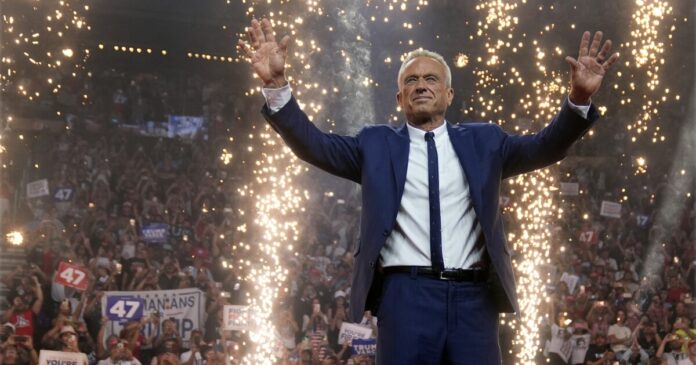An eleventh-hour lawsuit could keep North Carolina elections officials from sending out absentee ballots starting Friday, as required by statute. But even as Robert F. Kennedy Jr. sued to be removed from the North Carolina ballot, he’s fighting in court to be added to New York’s ballot.
Kennedy has sued the North Carolina State Board of Elections over its decision to deny his request for removal from ballots in the state.
RFK Jr. claimed the board’s 3-2 ruling on Aug. 29 violated his constitutional free speech rights. Kennedy had gotten on the North Carolina ballot by petition as the candidate of the We the People party.
We the People’s petition drive saved Kennedy from having to clear the higher hurdle for independent candidates seeking ballot access in North Carolina.
On Aug. 23, Kennedy suspended his campaign and immediately endorsed Republican candidate Donald Trump, in part, Kennedy said, because of the former president’s promise to negotiate with Russian President Vladimir Putin and end the war in Ukraine.
Four days later, Kennedy sent a letter to the North Carolina elections board formally seeking removal from the ballot. He has sought removal from the ballot in other battleground states, too, succeeding in some, including Arizona, Nevada, and Pennsylvania; and failing in others, such as Wisconsin and Michigan.
The state elections board’s three-member Democratic majority outvoted the two Republican members deeming it to be too impractical to remove Kennedy’s name with absentee ballots already printed and ready to start getting sent out this Friday.
But even as Kennedy tries to get off North Carolina’s ballot, he’s suing to be added to New York’s.
“It’s hard to know what the answer is as far as what Kennedy’s thinking?” said Shawn Donahue, a political science professor at New York’s University of Buffalo.
Kennedy is appealing a court ruling in New York that denied him ballot access over questions of his residency.
“You know,” Donahue wondered, “maybe he thinks that if, in some of these non-swing states, that he can gather some votes and it gives him more clout.”
Kennedy suspended his long-shot presidential bid and endorsed Trump amid speculation he might be lining himself up for a role in a future Republican administration.
Professor Chris Cooper, who teaches political science and directs the Haire Institute for Public Policy at Western Carolina University, said he certainly thinks that could be part of the reasoning behind Kennedy’s maneuvering to get out of Trump’s way in swing states, while staying on the ballot in heavily tilted states where his name won’t make a difference to the outcome.
“He wants to get as much attention as he can, he wants to keep himself in the mix, keep himself in the conversation, but he doesn’t want to cost Donald Trump the presidency,” Cooper said.
